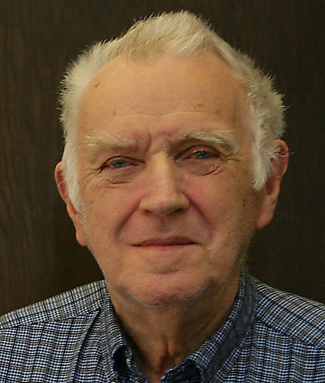
Bjarni Jónsson, Vanderbilt’s first Distinguished Professor of Mathematics, died Sept. 30 at the age of 96.
Born in Iceland, Jónsson earned his bachelor’s and doctoral degrees from the University of California-Berkeley and also received an honorary degree from the University of Iceland. He was internationally recognized as a leading authority on universal algebra, lattice theory and algebraic logic.
In his career, Jónsson authored 89 technical papers and served on the editorial board of several major mathematics journals, including Algebra Universalis. He presented numerous invited talks at mathematics conferences around the world. In 1974, he was an invited speaker at the International Congress of Mathematicians. In 2012 he was elected an inaugural fellow of the American Mathematical Society. He was also the recipient of Vanderbilt’s Harvie Branscomb Distinguished Professor Award in 1974 and the Earl Sutherland Prize for Achievement in Research in 1982.
“[lquote]Bjarni Jónsson was a remarkable mathematician who made field-defining and path-breaking contributions in universal algebra, lattice theory and algebraic logic.[/lquote] Anyone who had the fortune to know him admired his integrity, kindness and immense respect for colleagues and friends. His influence on my personal and mathematical life has been enormous, and it is a great privilege that I have had the opportunity to work with and learn from him,” said Professor Constantine Tsinakis, a long-term colleague and a former chair of the mathematics department.
“To me Bjarni will always be a legend, who in his quiet, sincere, unassuming ways continues to inspire uncountably many algebraists, raising questions and re-examining areas that he feels would benefit from an algebraic approach,” wrote Peter Jipsen, one of the doctoral students that Jónsson advised, on the occasion of his 70th birthday.
“While some mathematicians almost revel in stringing together long complex arguments, Bjarni has constantly sought to simplify and illuminate the subjects dear to him,” the professor of mathematics at Chapman University added.
Jónsson came to Vanderbilt in 1966 and taught here until his retirement in 1993. When he arrived, mathematics was mostly an undergraduate teaching department. He was instrumental in establishing the department’s graduate program, which presently ranks among the top departments in the nation, according to the latest evaluation by the National Research Council.
Jónsson also formed a research group in algebra that attracted mathematicians from around the world and contributed substantially to the high research profile that the department currently enjoys.
Algebra is the study of mathematical objects and the rules for manipulating them. Jónsson made his most important contributions in the area of universal algebra. It is one of the most abstract subfields of algebra because it studies algebraic structures in general, as opposed to specific classes of algebras, such as groups and fields. The importance of his contributions is reflected by the fact that a number of mathematical objects are named for him, including Jónsson and Jónsson-Tarski algebras, Jónsson cardinals, Jónsson terms, the Jónsson lemma and the Jónsson-Tarski duality.
During his tenure, Jónsson supervised 14 Ph.D. students. In letters they wrote for a symposium in honor of his 70th birthday, which took place in Iceland in 1990, his former students all expressed a deep appreciation for him as a “respected mathematical guide and personal friend.”
One of the first students he supervised, Steven Monk, now professor emeritus at the University of Washington, recalled advice that he received from Jónsson regarding teaching: “Adventure is not in the guidebook and beauty is not on the map. The best one can hope for is to be able to persuade some people to do some traveling on their own.”
“Bjarni’s work and scholarly contributions will have a lasting legacy. His name will forever be interwoven in the history of our department. We are honored to have had him as a colleague,” noted the current department chair, Professor Mike Neamtu.